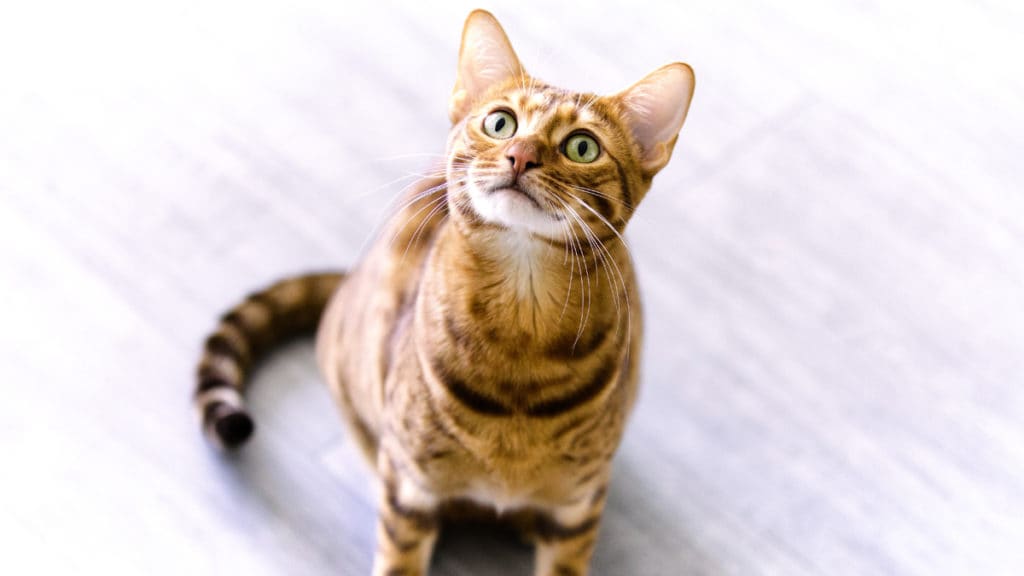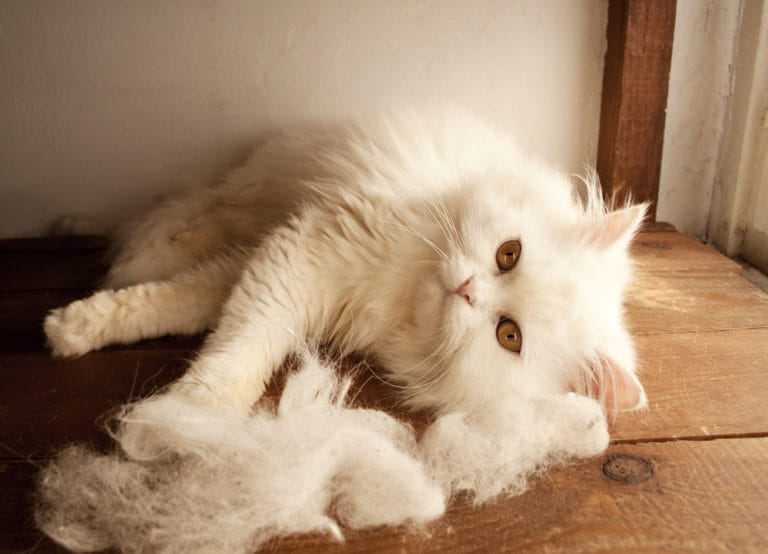Contributed by Dr. Alison Birken, owner and DVM of Victoria Park Animal Hospital.
We all know the benefit of prebiotics and probiotics for ourselves, but did you know that they have the same, exact positive effects on our cats as they do for us? As a small animal veterinarian, I consistently prescribe prebiotics and probiotics, not only for my sick patients suffering with an upset belly, but also for my patients’ overall wellness and health. Commonly, my pet parents do not know the difference between the two supplements and how they can help their pets. So, let’s discuss the difference between prebiotics and probiotics and why they are so beneficial for your pet.
What Are Prebiotics?
A prebiotic is a non-digestible carbohydrate that stimulates and promotes the growth and activity of normal healthy bacteria in the gastrointestinal system. Fructooligosaccharides (FOS) are the most common type of prebiotic. Oligosaccharides, arabinogalactans and lactulose are also considered prebiotics. The main food sources for prebiotics include legumes, fruits, whole grains, vegetables and chicory, to name a few.
What Are Probiotics?
Your pet’s digestive system is home to billions of bacteria that keep their gastrointestinal tract healthy. The term “probiotics” refers to these gastrointestinal-dwelling microbes (bacteria and yeasts) that are beneficial to your pet’s body. Probiotics are living microorganisms very similar to the friendly bacteria and yeasts that reside in your pet’s digestive tract. These friendly bacteria and yeasts aid in the digestion of food, fight off potential pathogens, make nutrients and vitamins, and bolster the immune system. Probiotics are prescribed to pets as supplements, in the form of a powder (I prescribe Purina Pro Plan Fortiflora), capsules (I prescribe Nutramax Proviable-DC Capsules Dog & Cat Supplement or VetriScience Vetri-Mega Probiotic Digestive Health Dog & Cat Capsules), chews, liquids or sprays.
How Do Prebiotics Work?
Prebiotics nourish and support the growth of probiotics (good bacteria), which help to control the bad bacteria. By supporting the growth and health of the good bacteria in your pet’s gastrointestinal system, it helps to prevent disease, improve digestion and nutrient absorption, and enhance the immune system. It is shown that pets that are given prebiotic supplementation get less diarrhea caused by bad bacterial overgrowth. The soluble fiber in prebiotics helps to prevent or treat diarrhea by absorbing moisture and slowing intestinal movement.
How Do Probiotics Work?
A healthy gastrointestinal tract involves a balance of good and bad bacteria. When there is an imbalance with more bad bacteria than good bacteria, this can result in illness such as diarrhea, vomiting, suppressed immunity and an upset stomach. By supplementing your pets with probiotics, you are boosting the amount of good bacteria that competes with the harmful bacteria for nutrients, and helps the immune system fight off sickness. Once gastrointestinal bacteria balance has been restored, your pet’s clinical signs resolve and he or she feels much better.
When Veterinarians Prescribe Prebiotics or Probiotics
Common Digestive Problems
One of the most common ailments I treat in cats is upset stomach. Cats with an upset stomach will suffer from abdominal pain, vomiting or diarrhea. Many times, this can be caused from stressful situations such as boarding or traveling. Other times, sickness can be caused from an abrupt diet change, a food indiscretion, antibiotics or parasites. When this happens, harmful bacteria can take over the good bacteria, leading to illness and a decline in health. I often prescribe prebiotics and probiotics to help restore or maintain a desirable intestinal microbial balance, which helps to improve the gastrointestinal upset. There are many forms of prebiotics and probiotics (chews, powders, liquids), and they are generally easy and convenient to give to pets.
Chronic Gastrointestinal Diseases
Some of my patients have chronic illnesses such as inflammatory bowel disease, irritable bowel syndrome, neoplasia or food allergies. These patients are great candidates for everyday use of probiotics.
Preemptive Use of Prebiotics and Probiotics
I like to use prebiotics and probiotics as a preventive measure when I know my patients will be stressed, such as when boarding or traveling. I also like to prescribe them for my patients who tend to have a sensitive GI tract, or when I place a cat on antibiotics or other medications that can cause belly upset. Many times when my clients are changing their pet’s food, I will recommend prebiotics and probiotics to help with a smoother transition.
Nowadays, our standards for pet care and nutrition are second to none. Just as we want the best nutrition, health and care for ourselves and loved ones, we want the same for our beloved fur babies. We routinely supplement our own diets with prebiotics and probiotics to help boost our immune system, so it’s only natural to give them to our pets. I hope this article helps my pet parents understand all the great benefits of prebiotics and probiotics, and encourages you to speak with your veterinarian regarding possible supplementation for your pet. As always, your veterinarian is the best resource for the health and well-being of your pet. Please be sure to contact them for any health questions or concerns.

Share:












